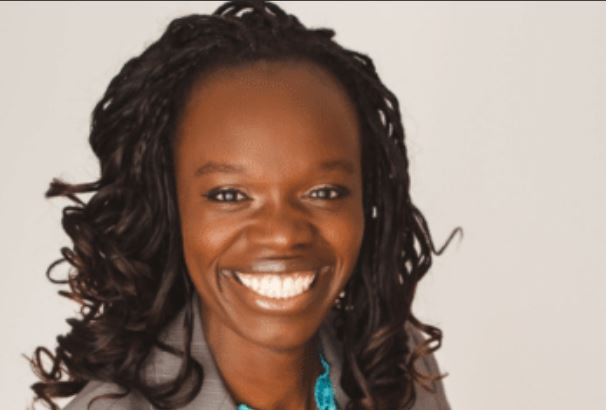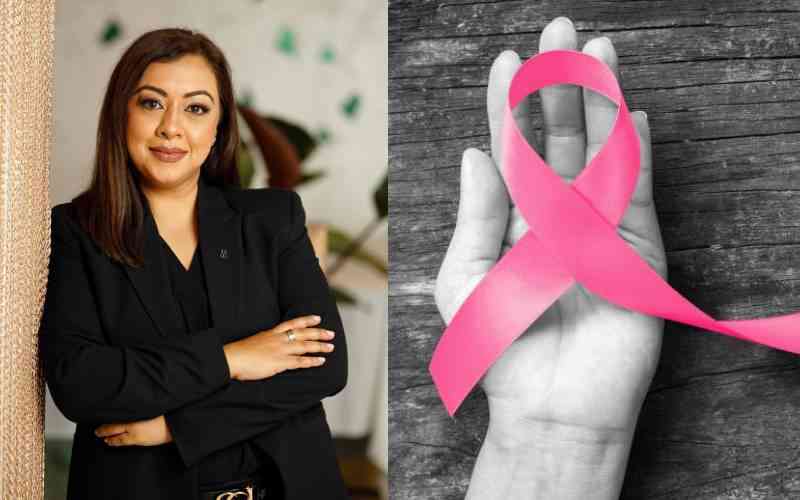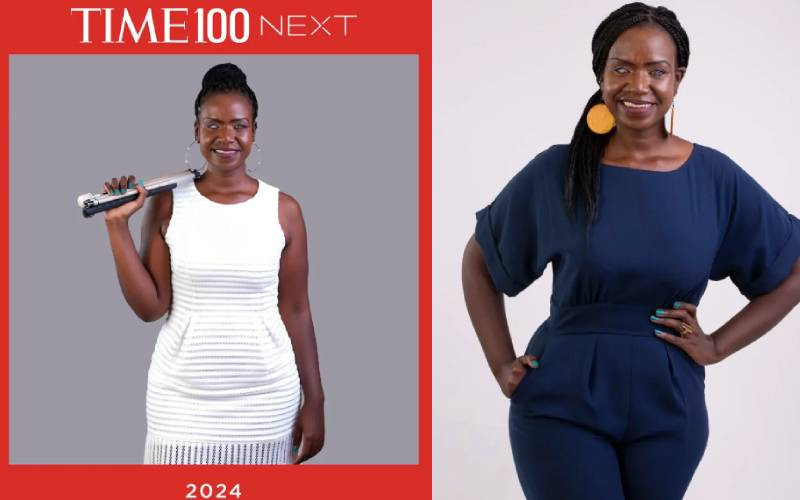
Due to stretch marks and acne in her teenage years, TARURI GATERE suffered low self esteem, she tells MUNDE OKUNA about posting her photographs on social media to evoke a conversation and help women accept their bodies as they are
"I have had cellulite on my bum and thighs since I was 13 but I didn't really know what it was then," says Taruri Gatere, a neuro-linguistic programming coach.
Taruri, in her 30s, is what one could describe as the modern Bohemian woman. She loves nature, is vegan and wears her hair natural.
"I actually found the little dimples kind of cute. It wasn't until I was much older that I realised they weren't," Taruri says.
"I'm a little all over the place right now because I'm moving to Nakuru from Nairobi so packing is hectic. I've always loved the countryside. It's so serene," she says as we settle down for the interview.
But Taruri was not always that bubbly person. She suffered severe depression from the time she was 18, all through to 21. She says her search for self worth from her physical appearance led her down a dark path.
During her high school years, Taruri changed schools twice, before suggesting to her parents that she be home-schooled.

From boarding to day to home school She first attended State House Girls High School in 1999, but because she had chest problems and couldn't receive proper care in the public boarding school, her parents moved her to Loreto Convent Valley Road – a day school.
But Taruri encountered cliques. "I found it hard to make new friends because I joined the school in Form Three, and people had already formed friendships," she says.
The desire to belong and its elusiveness took a toll on Taruri's self-esteem. It didn't help that her classmates started to tease her about her blossoming body.
"My hips just grew all of a sudden and everyone started to make fun of me. Though today hips are looked at as an asset, during my teenage years, I was made to feel fat and unattractive. I began to starve myself and once I lost weight, I would start eating normally again and regain the weight. Yo-yoing became normal to me," she confesses.
Because of her classmates teasing her about her weight, Taruri crawled into a cocoon and her academic performance began to deteriorate. One day during a church service, she heard a couple (who also happened to be pastors) talk about their home school and how it improved children's performance.
Taruri proposed the idea to her parents. "They were skeptical at first, but bought into it," she says.
First love After Taruri completed her high school, she met her first love. "We understood each other and did everything together."
But she says they became too dependent on each other, making the relationship toxic. "We had locked the rest of the world out."
Around the same time, Taruri started having bouts of sadness for no particular reason. She says she now realises it was depression.
"The isolation with my boyfriend did not help and I guess he realised we had a toxic relationship. So he just disappeared."
Taruri says she is still friends with her ex. She says she learnt how to manage the depression by knowing her triggers and suppressing them.
Venturing into new experience In 2007, Taruri decided to go to Italy to pursue fashion design. "It's the fashion capital, and I wanted a change of scenery, so I thought I'd go there."
Taruri said that at first, she found herself attracting many suitors and her low self-esteem about her body disappeared. "The men there like curvy women, so I fit in quite well. During the summer, I would wear my bikini, and the men would admire my hips."
But Taruri's esteem would soon be crushed. "I noticed something changed during the winter — when I was all covered up. I'd be at the bar and everyone, but me, was being approached since they couldn't see my figure."
Taruri says after some time she decided to stop basing her worth on her body. She made a mental note to herself that when she returned to Kenya, she wanted to start a campaign to help other women suffering from low self-esteem because of their bodies to accept themselves.
Fashion design business But when she did return, she put the idea in the back burner and started a fashion design business.
"But business was low. It was the era before social media had really hit, so getting the word out there was hard. Save for the bridal party dresses I made here and there, and when my sisters bought the outfits I had made, business was low," Taruri narrates.
So Taruri ditched the business. This gave her more time to think about the body acceptance project that had been ignited in her mind when she was in Italy.
"I was talking to a photographer friend one day, just bouncing off ideas and he suggested we do a photo shoot where I show off my flaws and post the photos online with a message to women to embrace their flaws."
Still being conscious about her physical flaws — especially cellulite — she was a little apprehensive about it. But she finally agreed to do it because "if I wanted other women to accept their flaws, I had to first embrace my own."
Baring it all for the camera
In October 2015, Taruri did what many women wouldn't dare to do before the people closest to them, let alone in public. She bared it all. Literally.
Taruri posted photos of herself in a top and bikini brief. The picture exposing her cellulite, stretchmarks and acne scars on her social media pages as part of a body love campaign.
In the weeks that followed, more photos were released — pictures of other women who were tired of hating their imperfect bodies and had learnt to embrace them.
There were pictures of a mother — who had recently given birth — in a bra and boy shorts, exposing her belly and stretchmarks. Others of a plus-size erotica blogger flaunting her curves, among others.
The reactions to the 'Flawnt It' campaign were mixed, ranging from admiration to disgust. There were women who thanked Taruri for letting women know they are not alone in the struggle for an 'ideal body' and that they can love themselves as they are.
Taruri says the response she got was positively overwhelming. "Although there were some rude comments, many people lauded me for being brave enough to address the issue of image."
But there was a group that came out strongly to condemn the campaign claiming it was "disgusting and "even if you are proud of the stretch marks, why broadcast them to the whole world? No one wants to see that."
Taruri says she was unhappy when people lashed out at the other lady for showing her stretch marks. "It made me upset because these people do not even know her. She got those stretch marks bringing forth life. I have a special place in my heart for mothers."
That didn't discourage Taruri. The campaign went on till June last year when Taruri took time off to focus on an neuro-linguistics programming course (a personal development, psychotherapeutic course).
"I realised that although the Flawnt It campaign was evoking the kind of conversation I wanted, we were not doing anything more to give women the tools to improve their personal lives in terms of their thinking and personal development."
Now, Taruri wants to do it all over again, and bigger this time. Next month, she will launch version 2.0 of the Flawnt It campaign as she calls on women of all sizes and shapes to start loving their bodies.
"There are still days I look at the mirror and feel unhappy with my body, but it's about consciously making the effort to love yourself as you are," she says.
 The Standard Group Plc is a multi-media organization with investments in media platforms spanning newspaper print
operations, television, radio broadcasting, digital and online services. The Standard Group is recognized as a
leading multi-media house in Kenya with a key influence in matters of national and international interest.
The Standard Group Plc is a multi-media organization with investments in media platforms spanning newspaper print
operations, television, radio broadcasting, digital and online services. The Standard Group is recognized as a
leading multi-media house in Kenya with a key influence in matters of national and international interest.










